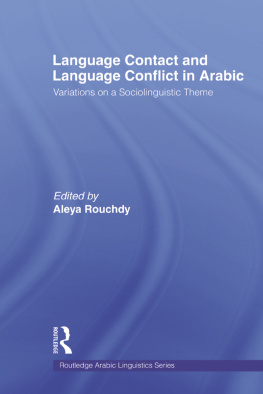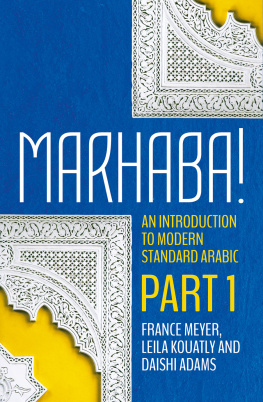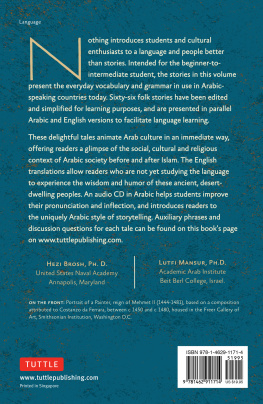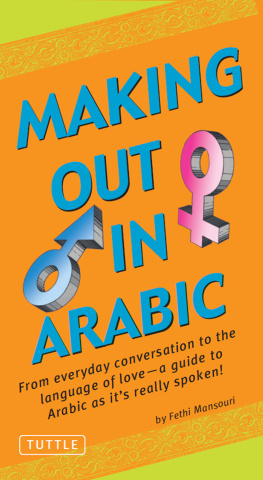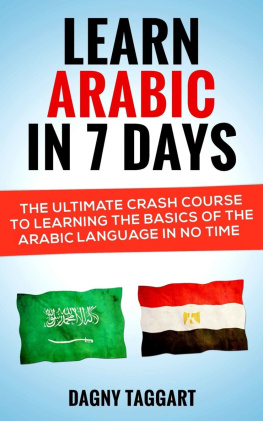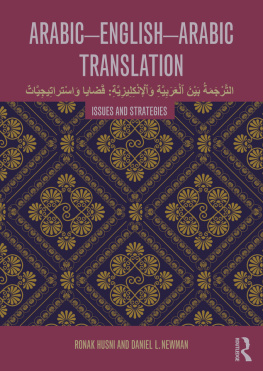Language Contact and
Language Conflict in Arabic
Routledge Arabic Linguistics Series
General Editor: Clive Holes (University of Oxford)
Editors:
El-Sa'id Badawi (American University in Cairo)
Adrian Gully (University of Exeter)
Yasir Suleiman (University of Edinburgh)
Keith Walters (University of Texas)
The Curzon Arabic Linguistics Series publishes high quality, academically rigorous research on Arabic linguistics to two main readerships: non-Arabist general linguists with an interest in Arabic, and students and researchers already in the field of Arabic language and linguistics. Both synchronic and diachronic studies of Arabic are welcome which aid our understanding of the historical evolution and the present state of Arabic, whether dialectal or standard. Works written from a sociolinguistic (e.g. language variation), socio-historical (e.g. language history), sociological (e.g. language planning), or psycholinguistic (e.g. language acquisition) perspective are welcome, as are studies of Arabic stylistics, pragmatics, and discourse analysis. Descriptive dialectological works also fall within the scope of the Series, as do works which focus on the evolution of mediaeval Arabic linguistic thought. Proposals or scripts for the Series will be welcomed by the General Editor.
MEDIEVAL ISLAMIC PRAGMATICS
Sunni Legal Theorists' Model of Textual Communication
Mohamed Mohamed Yunis Ali
JEWISH AND MUSLIM DIALECTS OF MOROCCAN ARABIC
Jeffrey Heath
LANGUAGE CONTACT AND LANGUAGE CONFLICT IN ARABIC
Variations on a Sociolinguistic Theme
Edited by Aleya Rouchdy
Language Contact and
Language Conflict in Arabic
Variations on a Sociolinguistic Theme
Edited by
Aleya Rouchdy

First Published in 2002
by Routledge
2 Park Square, Milton Park, Abingdon, Oxon, 0X14 4RN
Simultaneously published in the USA and Canada
by Routledge
270 Madison Ave, New York NY 10016
Routledge is an imprint of the Taylor & Francis Group
Transferred to Digital Printing 2009
Editorial Matter 2002 Aleya Rouchdy
Typeset in Times by LaserScript Ltd, Mitcham, Surrey
All rights reserved. No part of this book may be reprinted or
reproduced or utilised in any form or by any electronic,
mechanical, or other means, now known or hereafter invented,
including photocopying and recording, or in any
information storage or retrieval system, without permission in
writing from the publishers.
British Library Cataloguing in Publication Data
A catalogue record for this book is available from the British Library
Library of Congress Cataloging in Publication Data
A catalog record for this book has been requested
ISBN10: 0700713794 (hbk)
ISBN10: 0415567793 (pbk)
ISBN13: 9780700713790 (hbk)
ISBN13: 9780415567794 (hbk)
Publisher's Note
The publisher has gone to great lengths to ensure the
quality of this reprint but points out that some
imperfections in the original may be apparent.
This book is dedicated to my brother
Hatem Roushdy
(19411999)
And ever has it been that love knows not its own depth until
the hour of separation.
Khalil Gibran, The Prophet
Contents
1 Approaching Diglossia: Authorities, Values, and Representations
John C. Eisele
2 Dialect Levelling in Tunisian Arabic: Towards a New Spoken Standard
Maik Gibson
3 Education as a Speaker Variable
Enam Al Wer
4 Algrie: de l'Arabe l'Arabisation
Aziza Boucherit
5 Language Contact, Arabization Policy and Education in Morocco
Moha Ennaji
6 Identity and Language Tension in Lebanon: The Arabic of Local News at LBCI
Mahmoud Al Batal
7 The Language of Introduction in the City of Fs: The Gender-Identity Interaction
Fatima Sadiqi
8 Language Conflict and Identity: Arabic in the American Diaspora
Aleya Rouchdy
9 Speak Arabic Please!: Tunisian Arabic Speakers' Linguistic Accommodation to Middle Easterners
Sonia S'hiri
10 De la Variation Linguistique dans le Prche Populaire Mauritanien
Catherine Taine-Cheikh
11 Language is a Choice: Variation in Egyptian Women's Written Discourse
Mushira Eid
12 Jeux de Langues: Humor and Codeswitching in the Maghreb
Dominique Caubet
13 Moroccan Arabic in the European Diaspora
Louis Boumans and Jan Jaap de Ruiter
14 Arabic and English in Conflict: Iraqis in the UK
Farida Abu Haidar
15 Repetition Phenomena in Insertional Codeswitching
Louis Boumans
16 Second Generation Shifts in Sociopragmatic Orientation and Codeswitching Patterns
Janice L. Jake and Carol Myers-Scotton
17 Codeswitch Fluency and Language Attrition in an Arab Immigrant Community
K. Dallas Kenny
Contributors
Farida Abu Haidar
Institute of Linguists, England
Mahmoud Al Batal
Emory University, U.S.A.
Enam Al Wer
University of Essex, England
Aziza Boucherit
Universit Ren Descartes/Centre
d'tudes des Langues et Littratures
du Monde Arabe, France
Louis Boumans
University of Leiden, Netherlands
Dominique Caubet
INALCO, France
Jan Jaap de Ruiter
Tilburg University, Netherlands
Mushia Eid
The University of Utah, U.S.A.
John C. Eisele
College of William and Mary, U.S.A.
Moha Ennaji
Sidi Mohamed Ben Abdellah
University at Fs, Morocco
Maik Gibson
Universit de Tunis I, Tunisia
Janice Jake
Midlands Technical College, U.S.A.
K. Dallas Kenny
Wayne State University, U.S.A.
Carol Myers-Scotton
University of South Carolina, U.S.A.
Aleya Rouchdy
Wayne State University, U.S.A.
Sonia S'hiri
University of California at Berkeley,
U.S.A.
Fatima Sadiqi
University of Fs, Morocco
Catherine Taine-Cheikh
CELLMA, CNRS, France
Preface
This volume brings together in one book a large number of specialist studies, in geographically diverse locations, grouped around the theme of language contact in one language, Arabic.
Scholars expert in the area of Arabic sociolinguistics were invited to contribute articles dealing with different language contact situations in Arabic. Obviously, it is impossible to deal exhaustively with the subject of language contact phenomena in Arabic sociolinguistics. However, the reader will find interesting information on different issues related to Arabic in different social settings and specific illustrations of language contact situations that hopefully will stimulate further research in Arabic sociolinguistics. Furthermore, it is the hope of the contributors that this volume will not only benefit Arabists but also sociolinguists interested in inter- and intralingual phenomena in general.
I would like to take this opportunity to express my deepest appreciation to the contributors to this volume for their willingness to participate in this endeavor, for their patience, and especially for their support in my time of need. To all, thank you.
I am also grateful to Lawrence A. Scaff, Dean of the College of Liberal Arts, and the Office of Research Sponsored Programs Services at Wayne State University for their assistance in providing financial assistance for the production of this volume. Their support enabled me to finish editing the book. Furthermore, I would like to thank Curzon Press, which offered me an advance contract. This assistance has certainly facilitated my work. I am also grateful to my many friends at Wayne State University for their encouragement at crucial points in editing this volume. The book also owes a great deal to the Series General Editor, Clive Holes, for his suggestions and comments.

